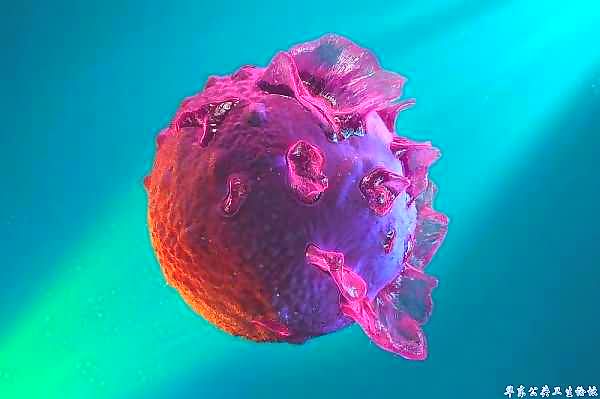
BOSTON,Aug.1(UPI) 全世界有90%以上的人口都感染过EBV病毒(人类疱疹病毒),通常是不会有影响,但新的研究表明,它可能会增加妇女乳腺癌的风险。
在以色列贝斯医疗中心研究人员报告乳腺细胞暴露于病毒后会出现乳腺癌特征,并会加速形成,这样使得应用疫苗预防具有特别的潜在意义。
Epstein-Barr virus(EBV)是第一个被发现能导致癌症的病毒,这样的病例每年约200000例。且一直怀疑与乳腺癌有关,该病毒还与非洲伯基特淋巴瘤、霍奇金病、鼻咽癌和胃癌相关。
虽然以前也有研究表明它与乳腺癌之间的联系。但这次研究从病毒到癌症给出了一个明确而且以前没有被观察到的关系。
以色列Beth医院和哈佛医学院研究人员认为“如果一个年轻女子在她十几岁的时候感染了EBV,之后她的乳腺上皮细胞将暴露于病毒。而对大多数人来说,不会有什么远后效应,但有些人感染可能会留下的伤痕,并改变这些细胞新陈代谢的遗传特征。虽然这些都是些微小变化,但几十年后可能就促进乳腺癌的形成”
研究人员在原代培养的乳腺上皮细胞中发现EBV的存在,并发现该病毒与正常乳腺细胞的受体。
当感染后的细胞开始具有干细胞的特性,被植入小鼠体内能改变细胞和某些感染的蛋白质相互作用引发乳腺癌。
研究者认为如果研发这样的EBV疫苗不仅可以保护孩子预防EBV感染及单核细胞增多症,它还可预防多种癌症,包括乳腺癌。
这项研究发表在ebiomedicine杂志上。
BOSTON,Aug.1(UPI)- More than 90 percent of the world's population has Epstein-Barr virus, often with no effects, but new research suggests it may increase risk for breast cancer among some women.
Researchers at Beth Israel Deaconess Medical Center report breast cells exposed to the virus show characteristics linked to breast cancer, and exposure may accelerate its formation, making the potential benefit of a vaccine particularly useful.
EBV was one of the first viruses found to cause cancer, and is linked to about 200,000 cases of the disease per year. While a link to breast cancer has been suspected, the virus is already linked to African Burkitt lymphoma, Hodgkin's disease, nasopharyngeal carcinoma and gastric adenocarcinoma.
Although studies have previously suggested a link to breast cancer, researchers involved with the new study say a definitive link from virus to disease had not previously been observed.
"We think that if a young woman develops EBV during her teenage years or later, her breast epithelial cells will be exposed to the virus and can be infected. While for most individuals, there will be no long-term consequences, in some the infection may leave genetic scars and change the metabolism of these cells," Dr. Gerburg Wulf, a researcher at Beth Israel and associate professor at Harvard Medical School, said in a press release. "While these are subtle changes, they may, decades later, facilitate breast cancer formation."
For the study, published in the journal EBioMedicine, researchers cultured primary mammary epithelial cells in the presence of EBV, finding the virus binds to a receptor on normal breast cells, infecting them.
When the cells, which began to take on the characteristics of stem cells after infection, were implanted into mice, changes to the cell and the infections' interaction with certain proteins caused the start of breast cancer.
A vaccine against the virus would prevent not only infection, which is commonly linked to the development of mononucleosis, but could prevent cancers linked to it, including breast cancer.
"The findings further make the case for an EBV vaccine that might protect children from infection and later EBV-associated malignancies," Wulf said.




